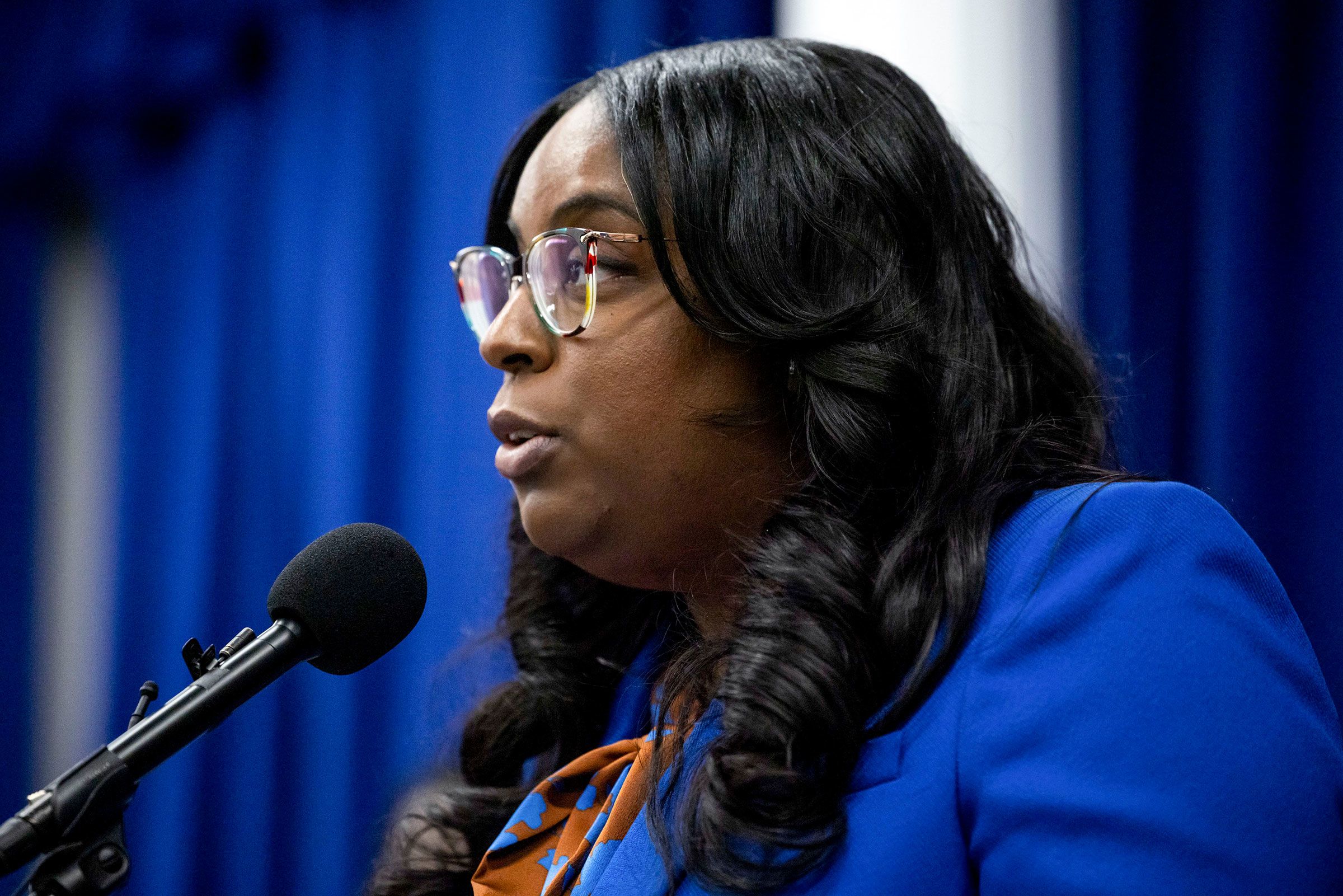Analyzing the Controversial Charge Against Rep. LaMonica McIver
By Shania Shelton, CNN
Background of the Incident
On a tense day earlier this month, Democratic Representative LaMonica McIver found herself thrust into a legal and political whirlwind outside an Immigration Customs and Enforcement (ICE) detention facility in Newark, New Jersey. The confrontation escalated significantly when McIver and fellow lawmakers attempted to assert their oversight authority over the federal institution, leading to a chaotic scene marked by interactions with Homeland Security Department officers. This incident not only ignited a heated discussion about the limits of congressional authority but also established a battleground for political narratives surrounding federal enforcement actions.
McIver’s Response
In her first extensive interview post-charges, McIver voiced her strong discontent with the accusations leveled against her, deeming them “absurd” and “ridiculous.” With a conviction rooted in her legislative responsibilities, she emphasized that lawmakers have an obligation to oversee federal facilities. Her fervent assertion underscores the critical role that Congress plays in maintaining checks on executive agencies, particularly in contentious environments like ICE detention facilities. “This is our job description,” McIver asserted, signaling that her actions were in line with her duties as a representative.
The Escalation of Events
The situation began to escalate when Newark’s Democratic Mayor, Ras Baraka, attempted to join the visiting lawmakers inside the ICE facility. His involvement triggered a series of events that led to his attempted arrest by federal officers, causing further disruption. This unfolding drama encapsulated the complexities of governance, where executive and legislative branches sometimes collide over fundamental rights and responsibilities. McIver’s engagement in this situation showcases the friction that can arise when elected officials seek to fulfill their oversight roles amid contentious federal policies.
Legal Proceedings and Charges
As the dust settled, the legal ramifications became clearer. Prosecutors announced plans to drop federal trespassing charges against Mayor Baraka, focusing instead on Rep. McIver. Acting US Attorney Alina Habba accused her of assaulting and interfering with law enforcement officials during the incident. The specificity of these charges indicates a serious legal landscape for McIver to navigate, raising questions about the implications for her political career and broader accountability frameworks around ICE operations.
Ongoing Efforts and Future Steps
Despite the gravity of the situation, McIver expressed a sense of normalcy in her routine. “It’s business as usual,” she mentioned, reflecting a determination to continue her work amidst the unfolding legal issues. She is actively seeking guidance as her attorneys communicate with federal courts in New Jersey to understand the subsequent steps she must take. This proactive stance indicates a commitment to both her constituents and her responsibilities, suggesting that the incident will not detract from her legislative agenda.
Political Ramifications
The incident has broader implications within the political landscape. It highlights the ongoing tensions between federal law enforcement policies and the rights of elected officials to oversee and critique those policies. McIver’s situation may serve as a pivotal case study for other lawmakers who find themselves in similar confrontations with federal authorities, particularly given the charged political atmosphere surrounding immigration enforcement.
Conclusion
LaMonica McIver’s experience outside the ICE facility raises critical conversations about oversight, authority, and the impact of political actions on legal proceedings. As she navigates the awaiting legal and procedural challenges, the discourse surrounding her case will undoubtedly inform future legislative actions and the relationship between local and federal government entities in the United States.


